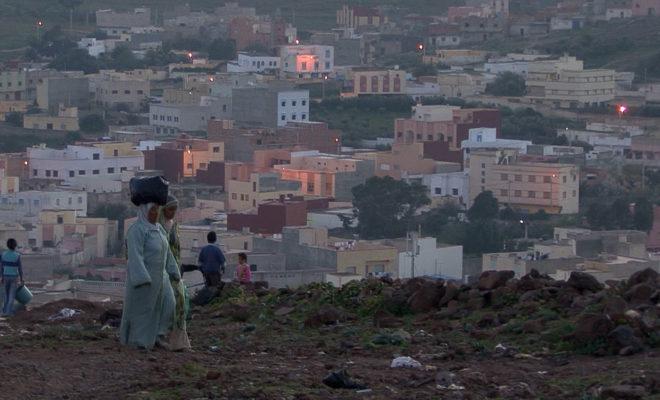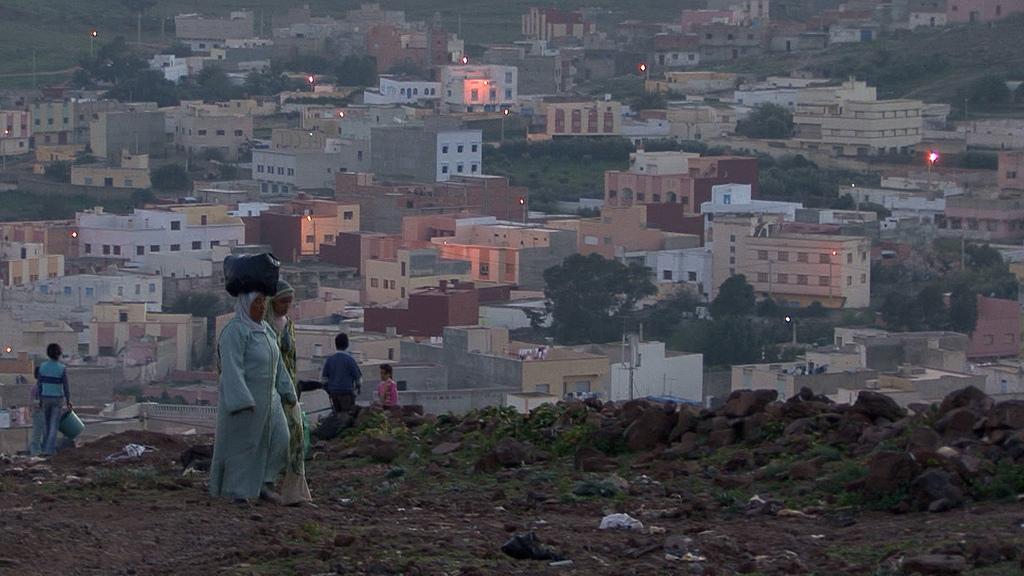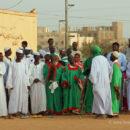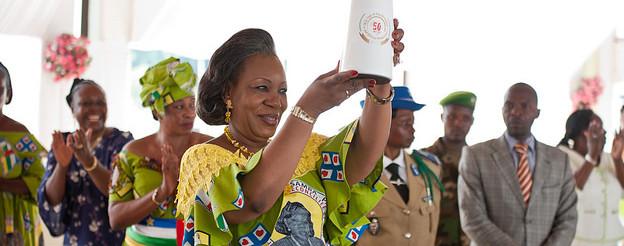Morocco in the middle

As more migrants head to Europe via Morocco, Rabat is taking advantage of its newfound position to extract concessions.

The Spanish enclaves of Melilla and Ceuta in Morocco are the two places where Africa and Europe share a direct border. Credit: Stéphane M. Grueso.
From Morocco’s northern tip, it is a mere 14 km across the sea to Spain. Yet despite the proximity of Africa and Europe across the Strait of Gibraltar, most migrants heading north have tended to avoid Morocco, aiming instead for Italy or Greece.
That is at least until recently. Over the past couple of years, the number of people crossing the Mediterranean through the central and eastern sea lanes has diminished, while the popularity of the route from Morocco to Spain has risen significantly. This August, more than six times as many people from Africa arrived in Spain than in Italy. Nearly 300 migrants a day are now crossing via the western Mediterranean, making the sea route from Morocco the most heavily travelled.
In response, the European Union has followed a familiar strategy of outsourcing much of its border security to Morocco. “Morocco’s not a part of the EU, but it’s in some ways trying to re-border itself against the migrants coming in from the south, in some ways doing Europe’s bidding,” says Gregory White, a professor at Smith College who studies Moroccan politics.
This has put Rabat in the middle of a critical geopolitical development. And it has seemed eager to take advantage.
Some in Spain argue that Morocco has become increasingly capricious as its role on the border has grown. Human rights advocates worry that Rabat has been allowed to treat migrants harshly so long as it keeps them from getting to Europe.
“Morocco is pressuring the EU to get more funding and the EU is pressuring Morocco to continue playing the role of the gendarme to control its southern borders,” says Khadija Ainani, vice-president of the Moroccan Association for Human Rights. “The EU is trying by all means to outsource migration management to the countries of the South and, for that, it turns a blind eye to all violations of the rights of sub-Saharan migrants in Morocco.”
A country between continents
Rabat has long aspired to be both a leader in Africa and a bridge to Europe. This effort has been stymied in part by its claim of sovereignty over Western Sahara, a disputed territory that separatists call the Sahrawi Arab Democratic Republic.
But it now finds itself at a critical moment. While many of Morocco’s North African neighbours have undergone nearly a decade of turmoil in the aftermath of the Arab Spring, King Mohammed VI’s rule has remained relatively intact. Morocco has built diplomatic and economic ties with several West African states and, last year, rejoined the African Union after a 33-year absence prompted by the row over the Western Sahara.
In recent months, Morocco has also now had a chance to prove to Europe just how crucial it can be.
As crackdowns in Libya, Italy and Greece have made it more difficult for migrants to ply these routes, they have moved west. Of the roughly 75,000 people who have entered Europe via the Mediterranean this year, more than 36,000 arrived in Spain. That’s a more than three-fold increase from the same period last year. Greece and Italy, meanwhile, have each seen roughly 20,000 migrants so far this year, the lowest rate since 2014.
Overall, the number of migrants heading to Europe has dropped dramatically from the 1 million people who made the crossing during the peak in 2015. But while numbers are dropping off in most places, they are rising along the route from Morocco to Spain.
“It depends on their interest”
In July, the EU promised to send €55 million ($64 million) to Morocco and Tunisia to help manage migration. That’s in addition to more than €100 million ($117 million) Europe says it has given Morocco for the same purpose over the last decade.
According to some observers, Morocco is using migrants as leverage in its interactions with Europe in various ways. Rabat denies it, but many are not convinced.
“Morocco sometimes helps and sometimes doesn’t,” Juan José Imbroda, mayor-president of the small Spanish enclave of Melilla, told African Arguments. “It depends on their interest.”
Melilla, like its sister city Ceuta, sits on the African continent, wedged between Morocco on one side and the Mediterranean on the other. The two enclave cities host the only land borders between Africa and Europe and have become a target for some migrants unable to pay smugglers for sea crossings. At times, people rush the fences by the hundreds and scale them en masse to reach Spanish soil. Imbroda says this wouldn’t be possible without the tacit approval of Moroccan authorities and accuses Rabat of “lack of loyalty.”
Spaniards have also faced economic consequences from Morocco’s decision in late-July to halt commercial traffic flowing through the border with Melilla. For decades, the Spanish city hosted the region’s main port, but critics accuse Morocco of undermining this arrangement to develop its own shipping capabilities. Morocco says it is simply trying to clamp down on smuggling and tax evasion.
Recently emboldened, some also believe Morocco is also looking to solidify its grasp on Western Sahara by including the territory’s waters in a new fisheries deal with Europe. If the deal falls apart, Rabat has dangled threats about backing off from its cooperation on migration and security matters.
From transit country to destination
When it ramps up its security operation, Morocco has shown that it is capable of brutality. An estimated 5,000 migrants have been rounded up by authorities and dumped elsewhere in the country since July, according to the Moroccan Association for Human Rights. Amnesty International calls the crackdown “a worrying backslide” from five-year-old reform efforts that gave migrants a way to stay in Morocco legally.
Rabat has described the efforts as a fight against trafficking networks and said that its movement of migrants is an effort to distribute them to other cities. Yet as Morocco hardens the path through its territory, it is finding that more and more migrants are staying put. Perhaps they’ve decided going to Europe is simply too difficult, or else they’ve found reason to start a new life in Fes, Casablanca or Marrakesh.
In coming years, those demographic changes could spell a dramatic shift in the country’s – and the region’s – social and political makeup.
“The sub-Saharan population of North African countries is increasing both in size and visibility in ways that would’ve been very surprising a couple years back,” says Matt Herbert, a Tunisia-based security analyst.
“It’s a new trend of migration into a region that traditionally, at least since independence in the 1960s, has mainly been a point from which migrants leave… But now you’re finding people coming in, which is very different for the societies involved.”
Research for this article was made possible with the support of the Heinrich Boell Foundation North America.





